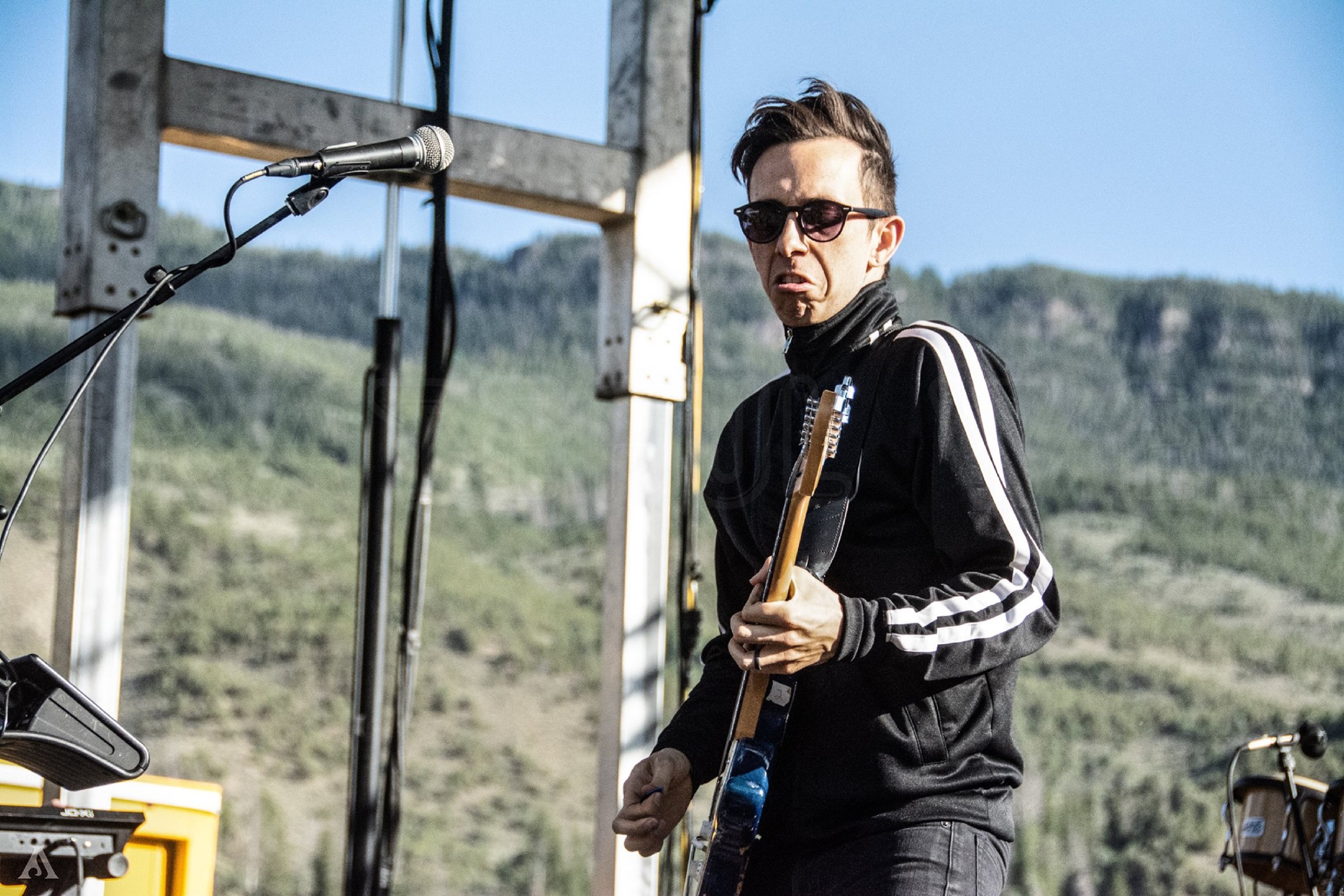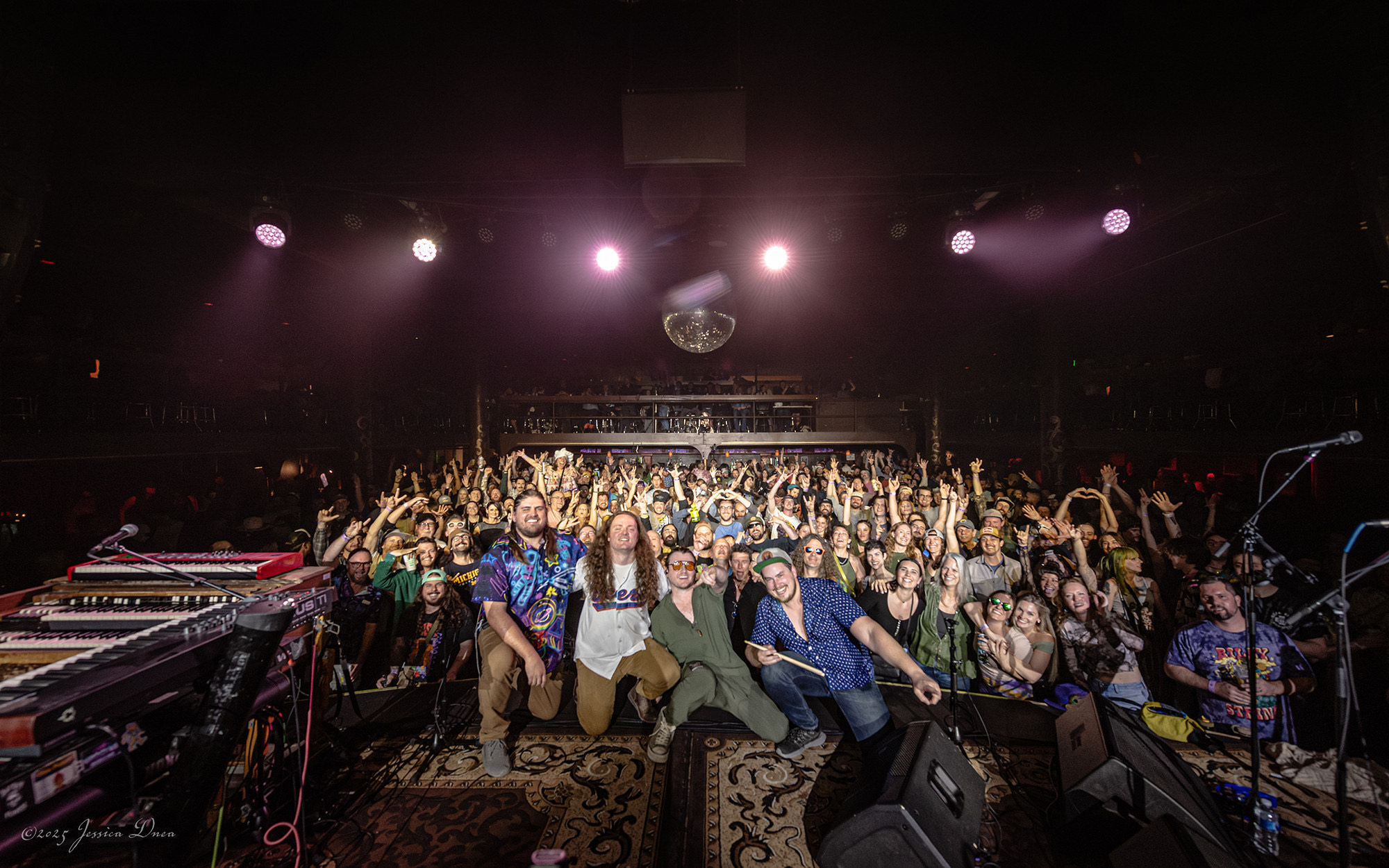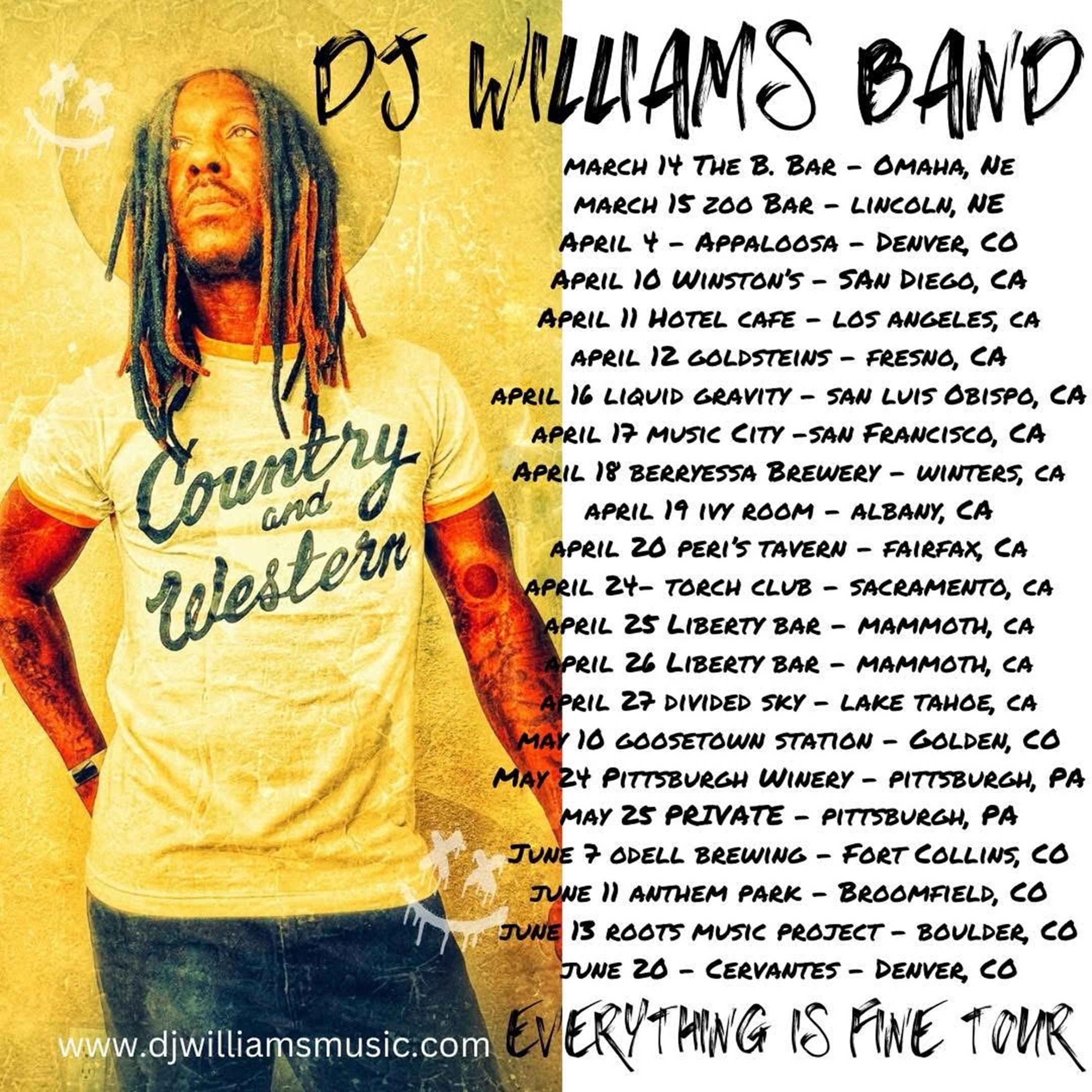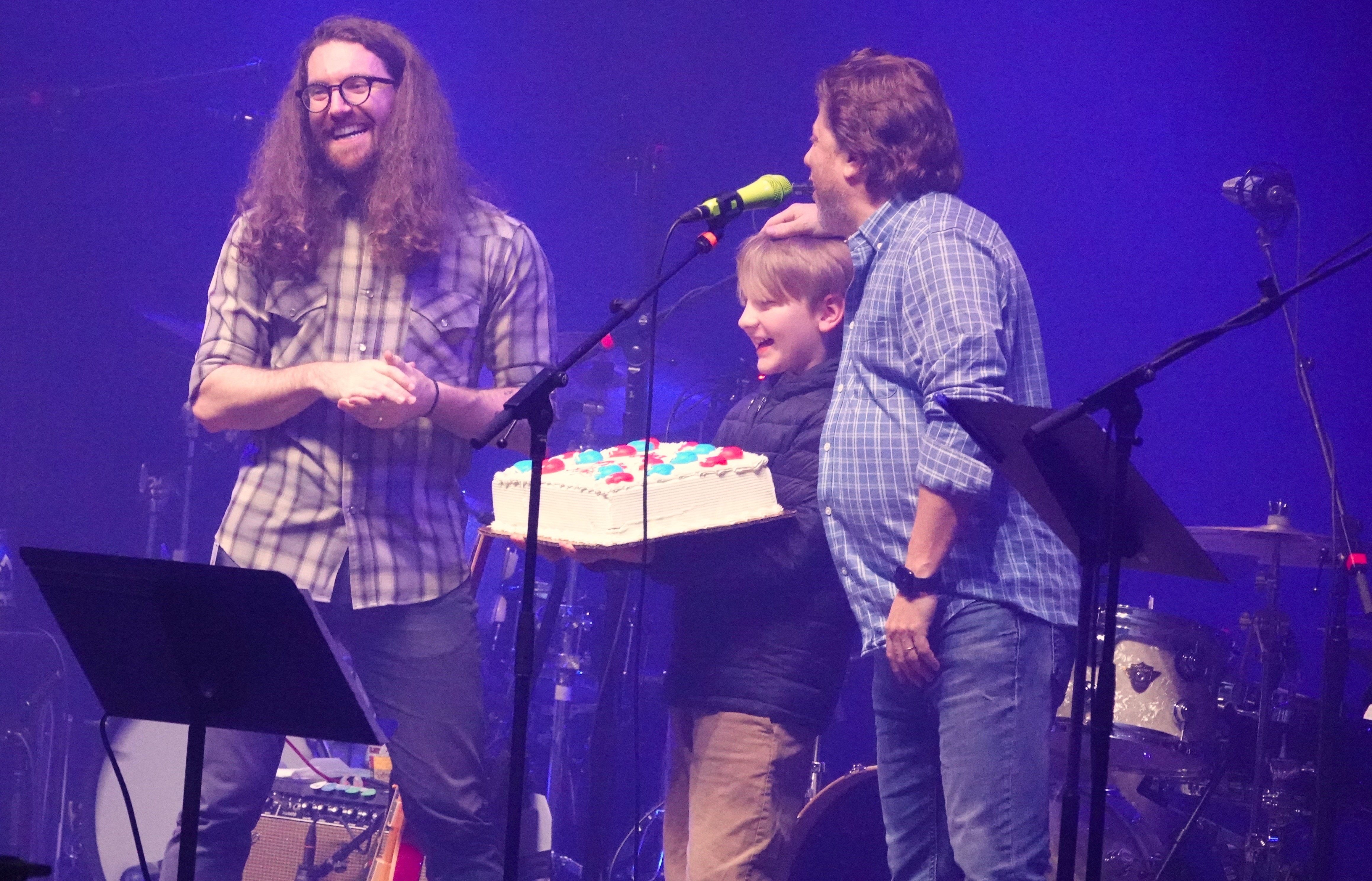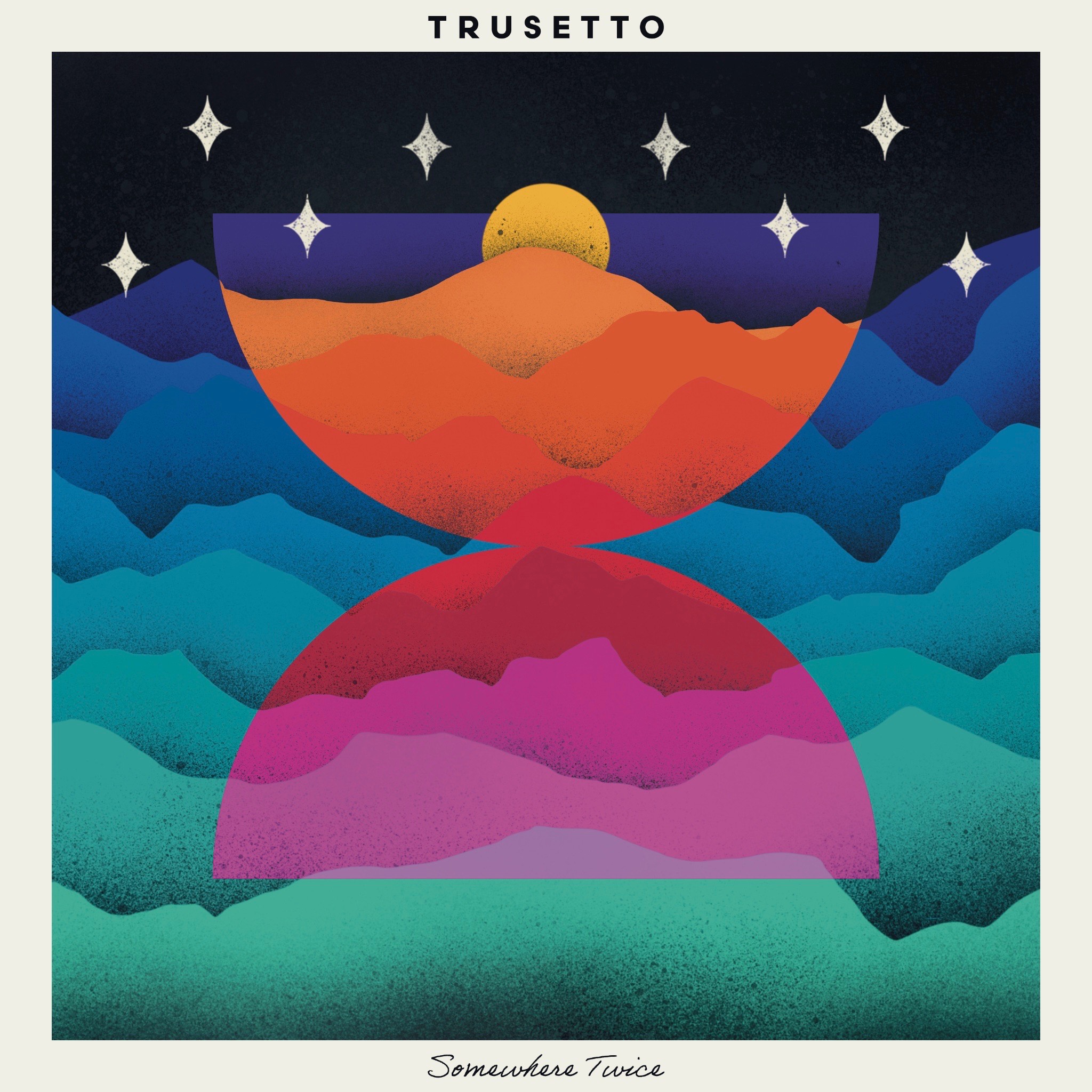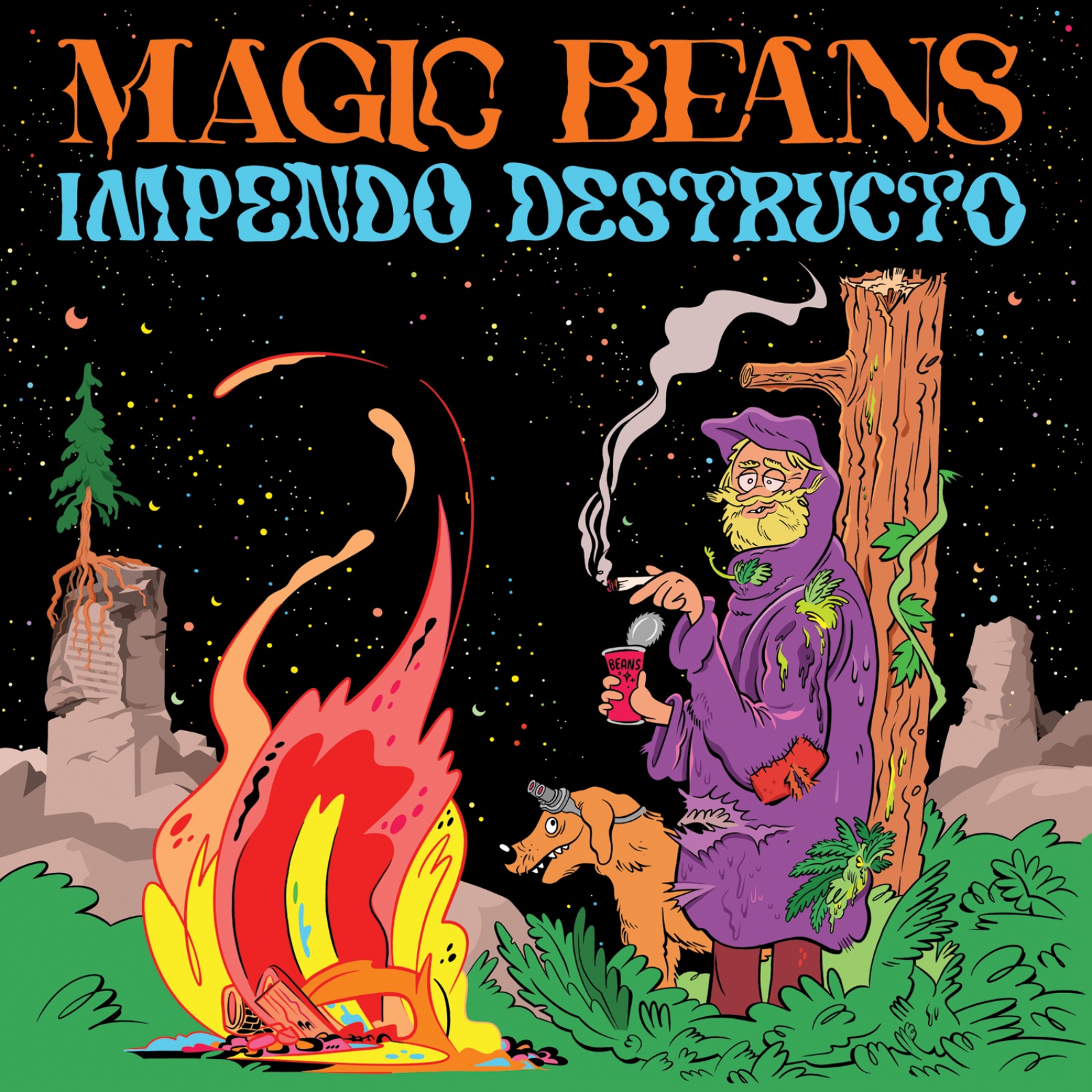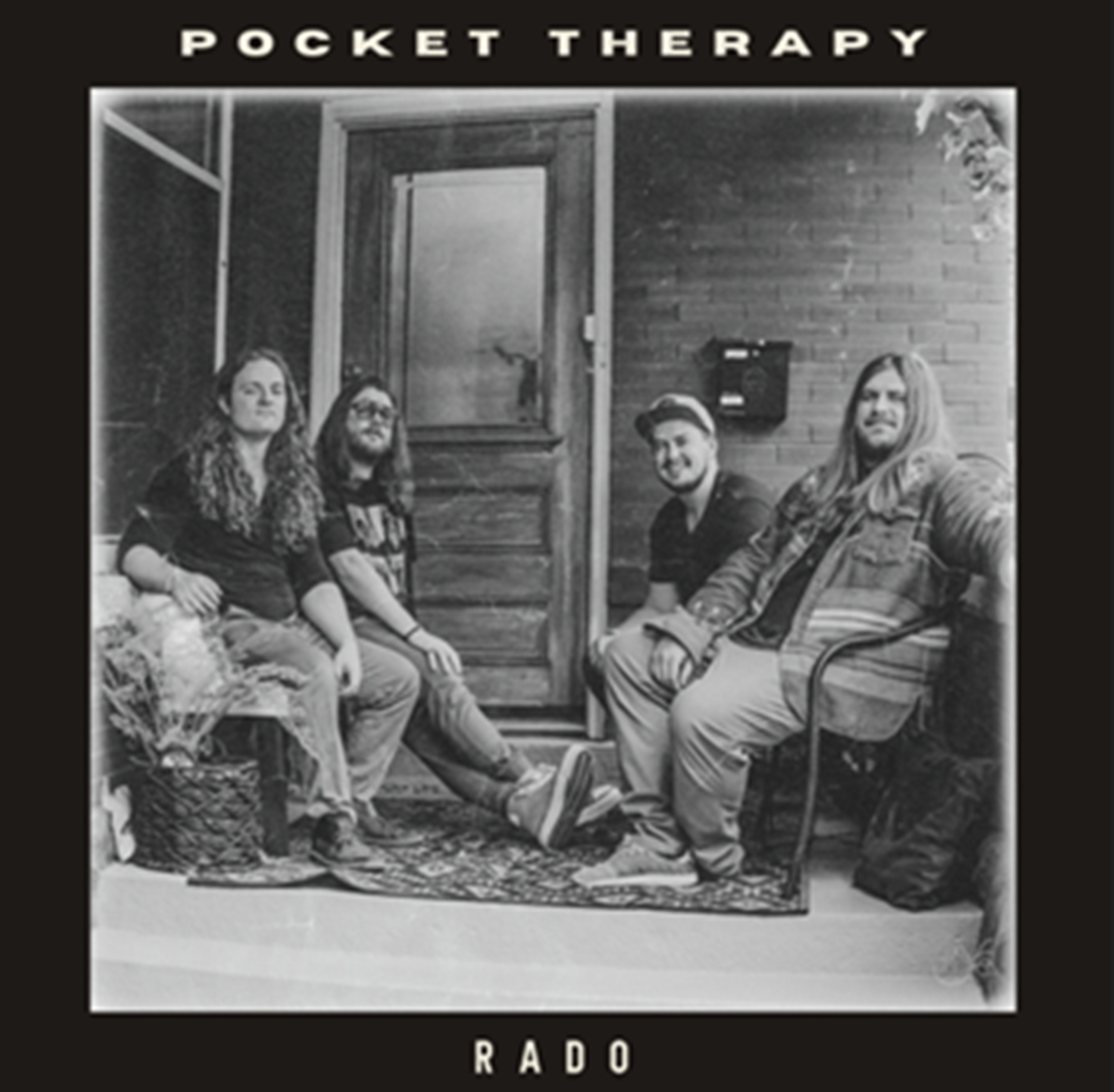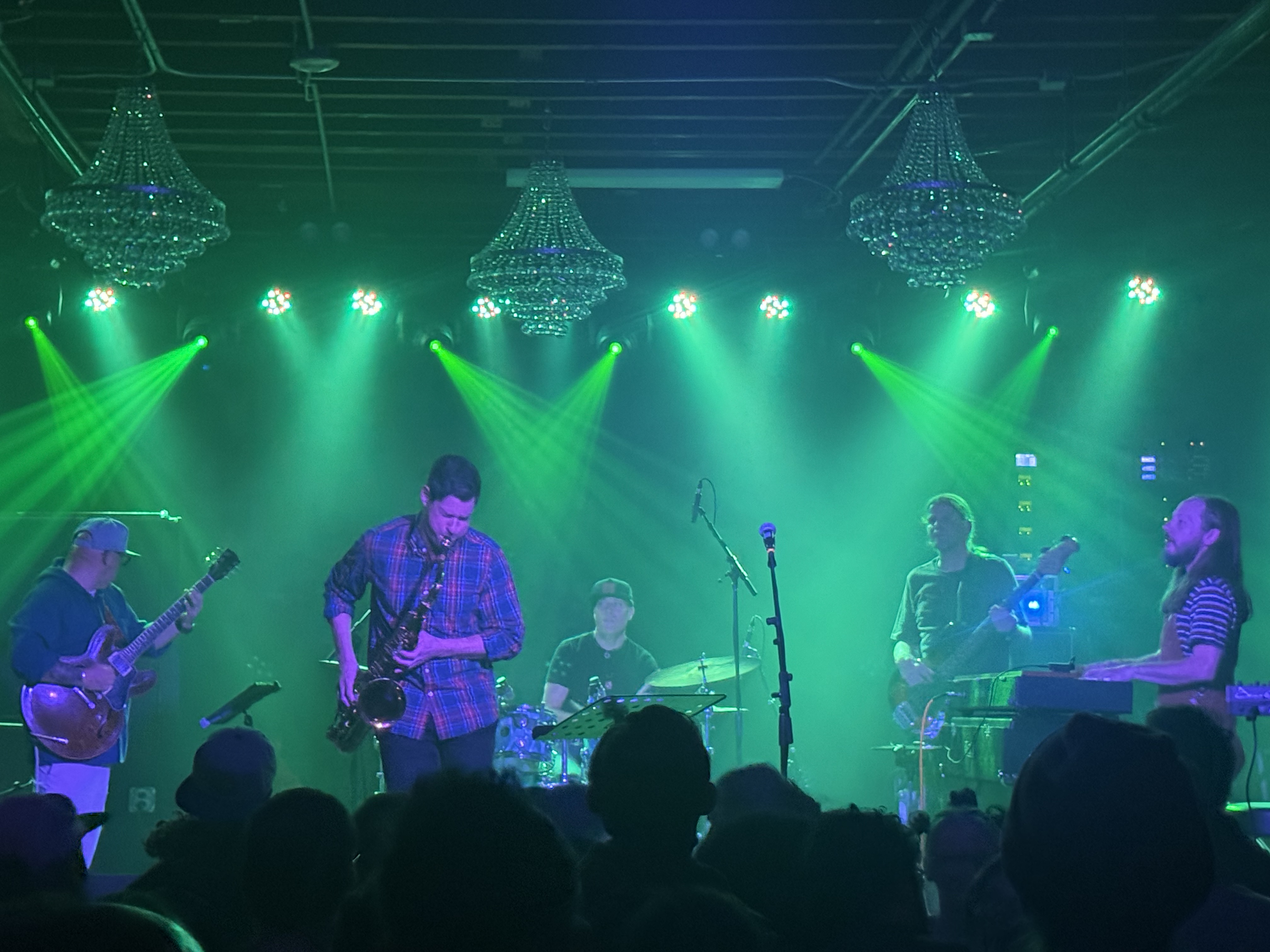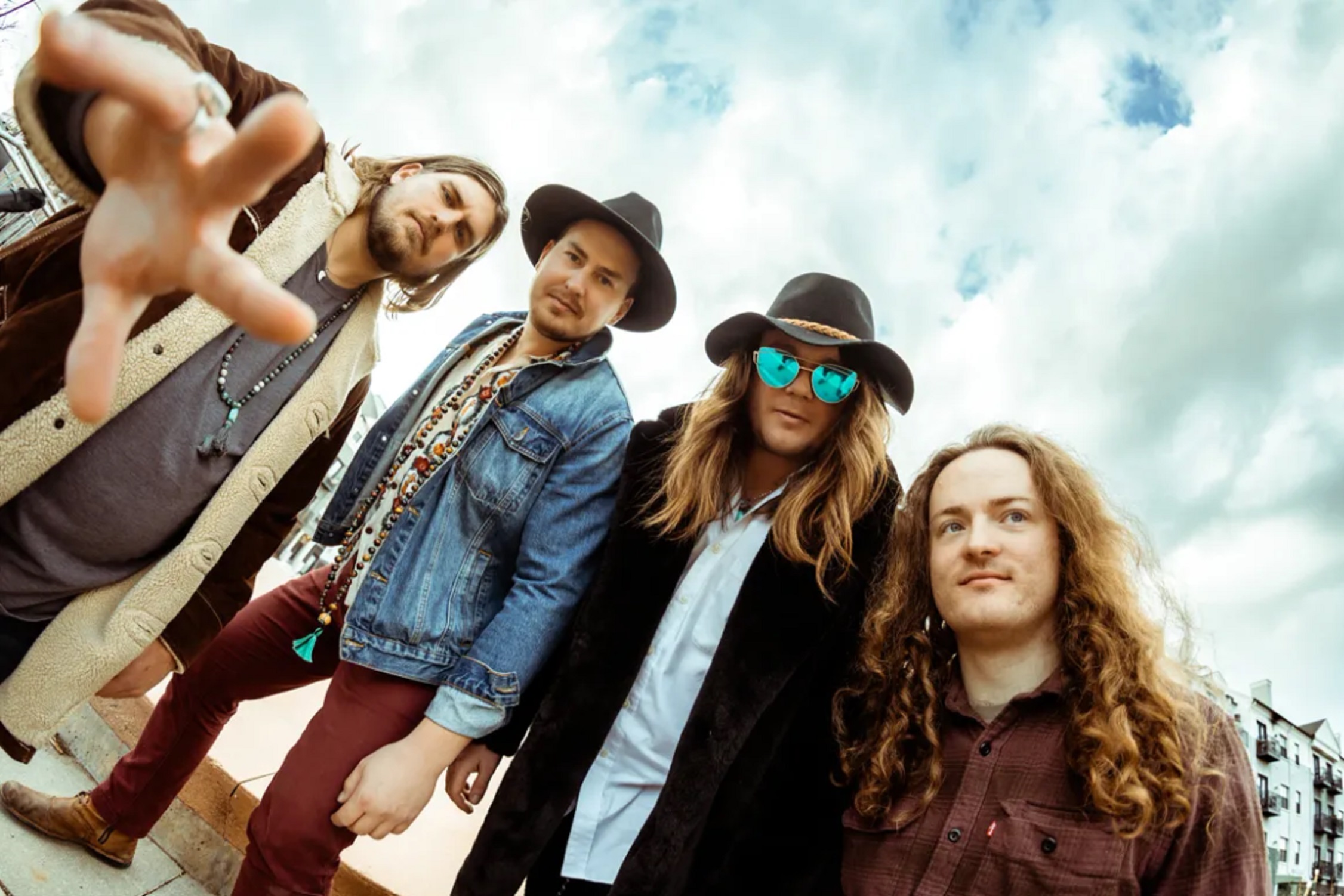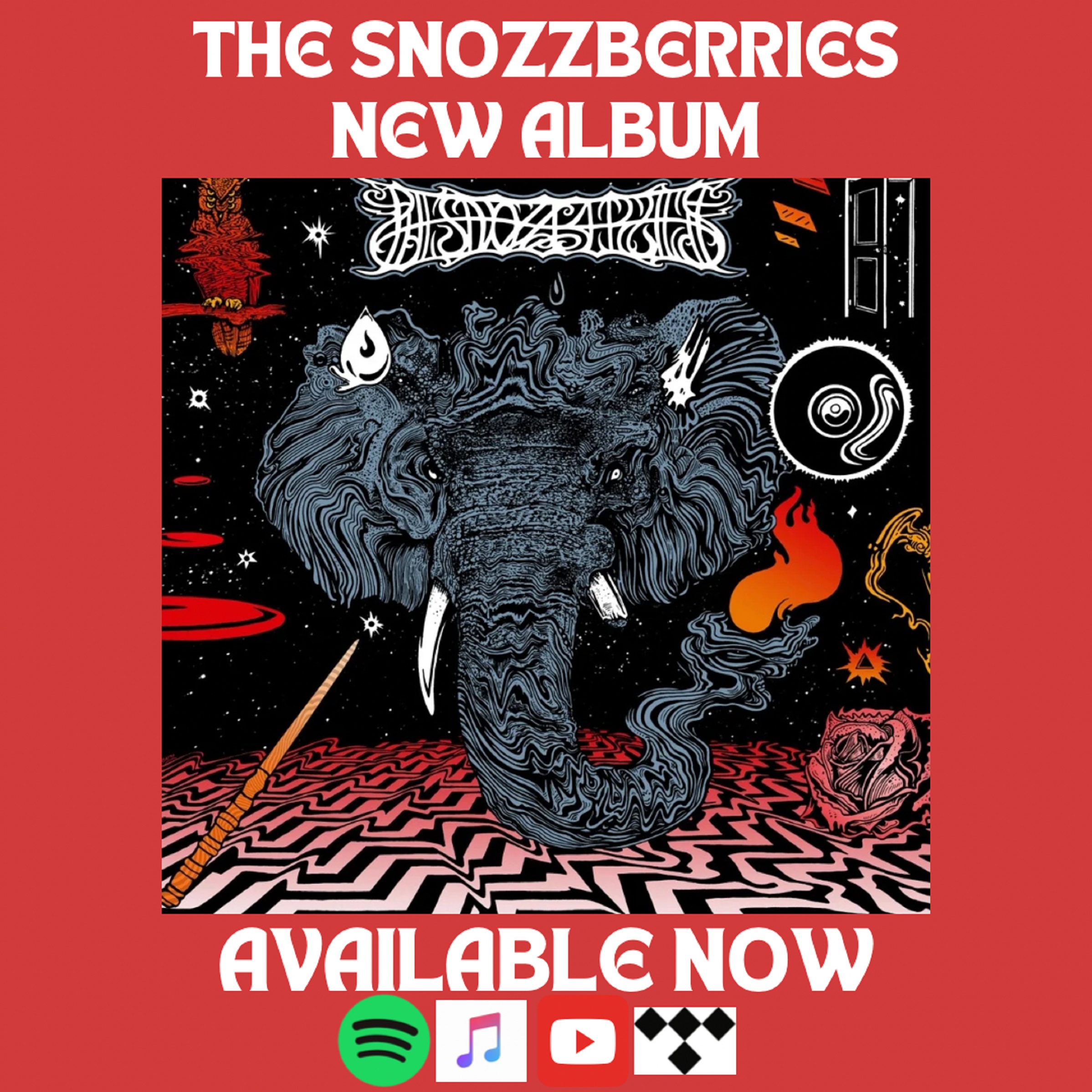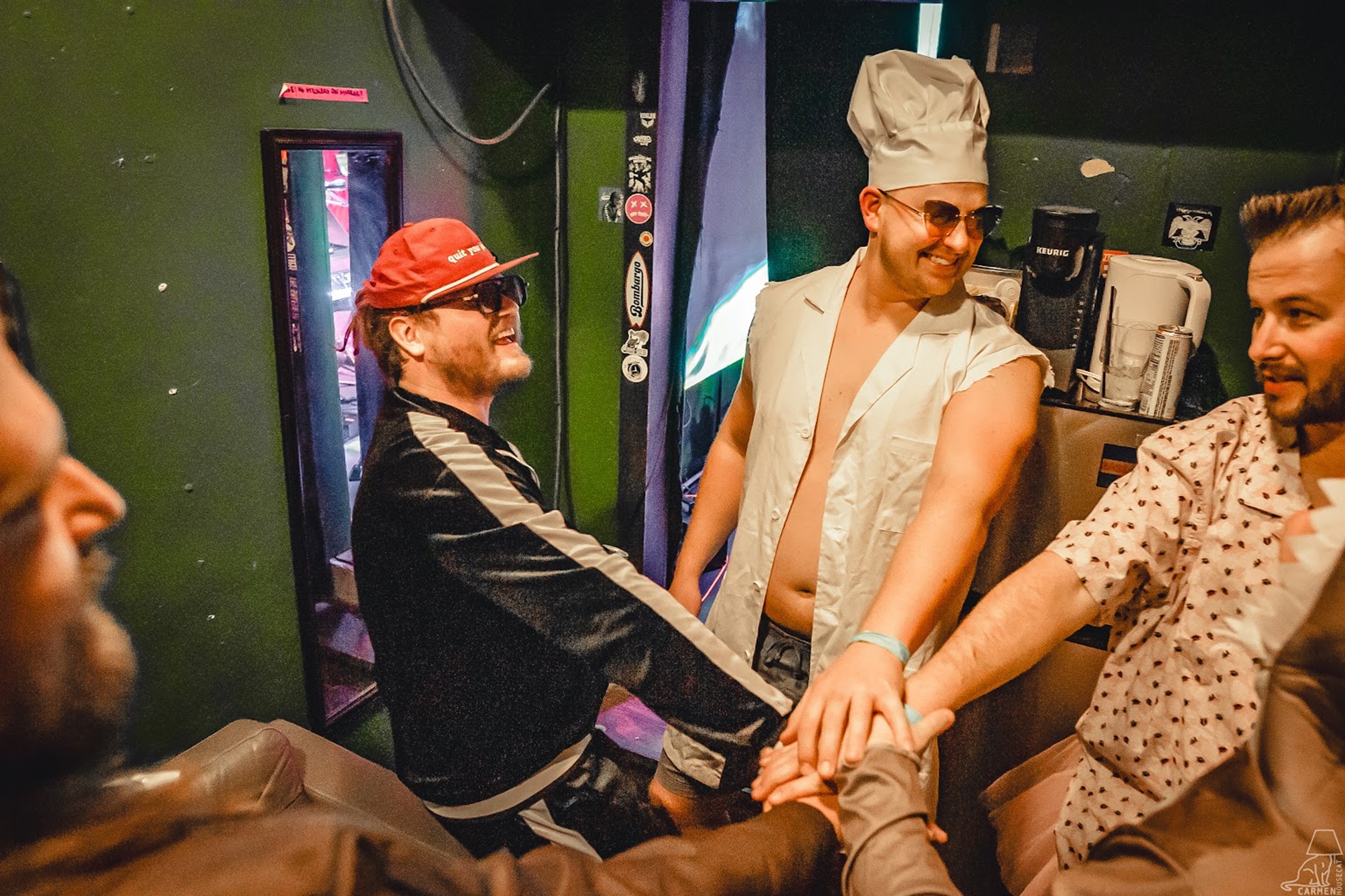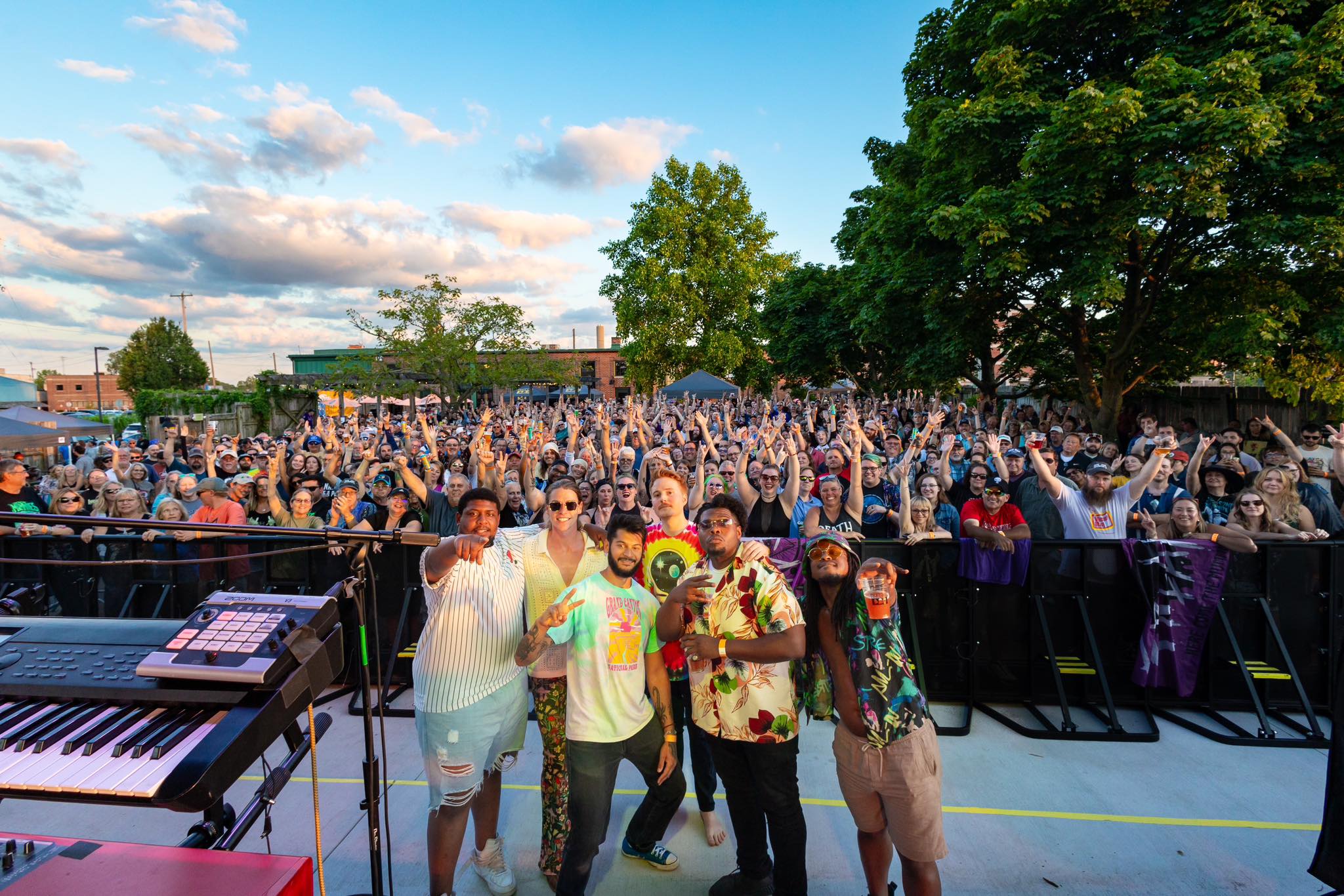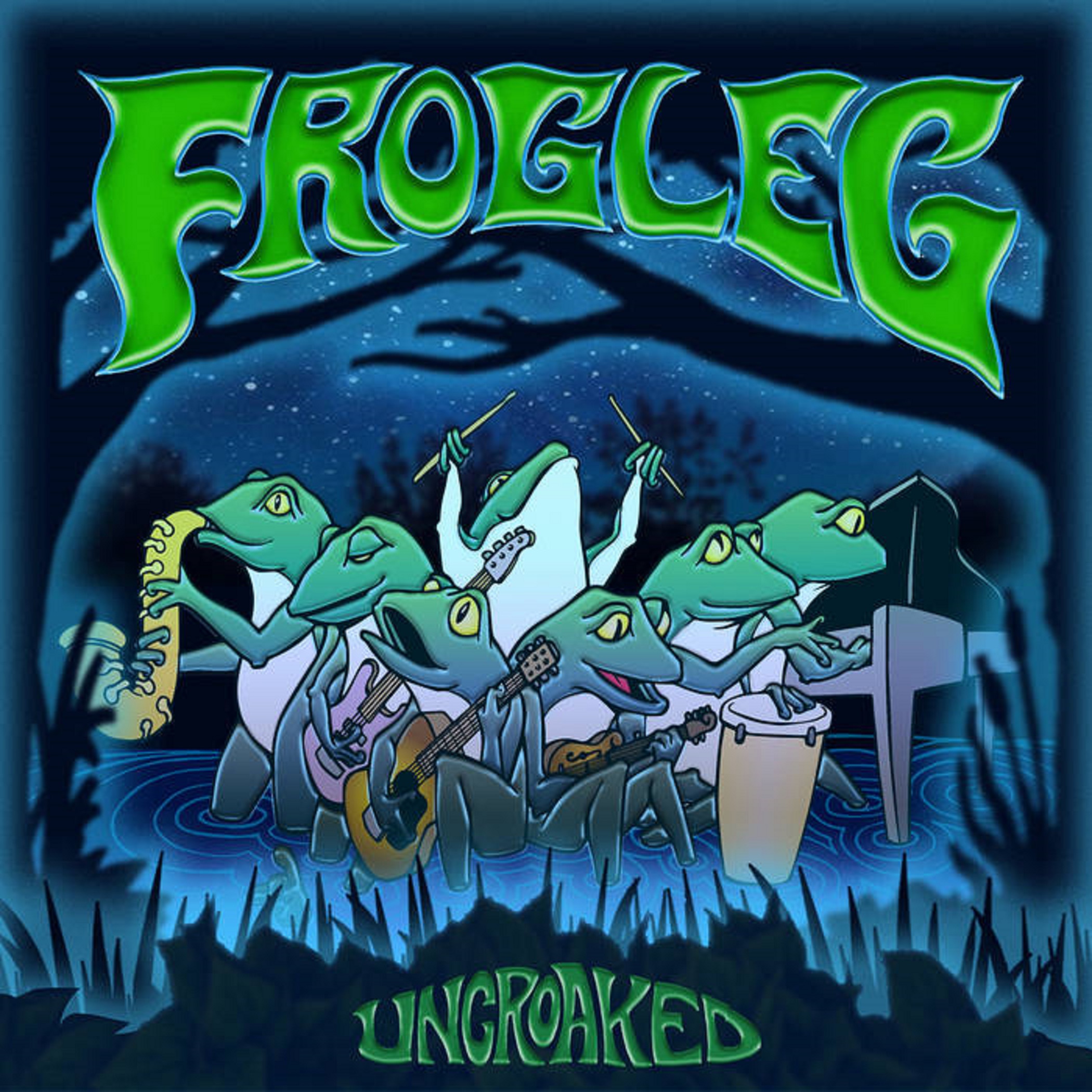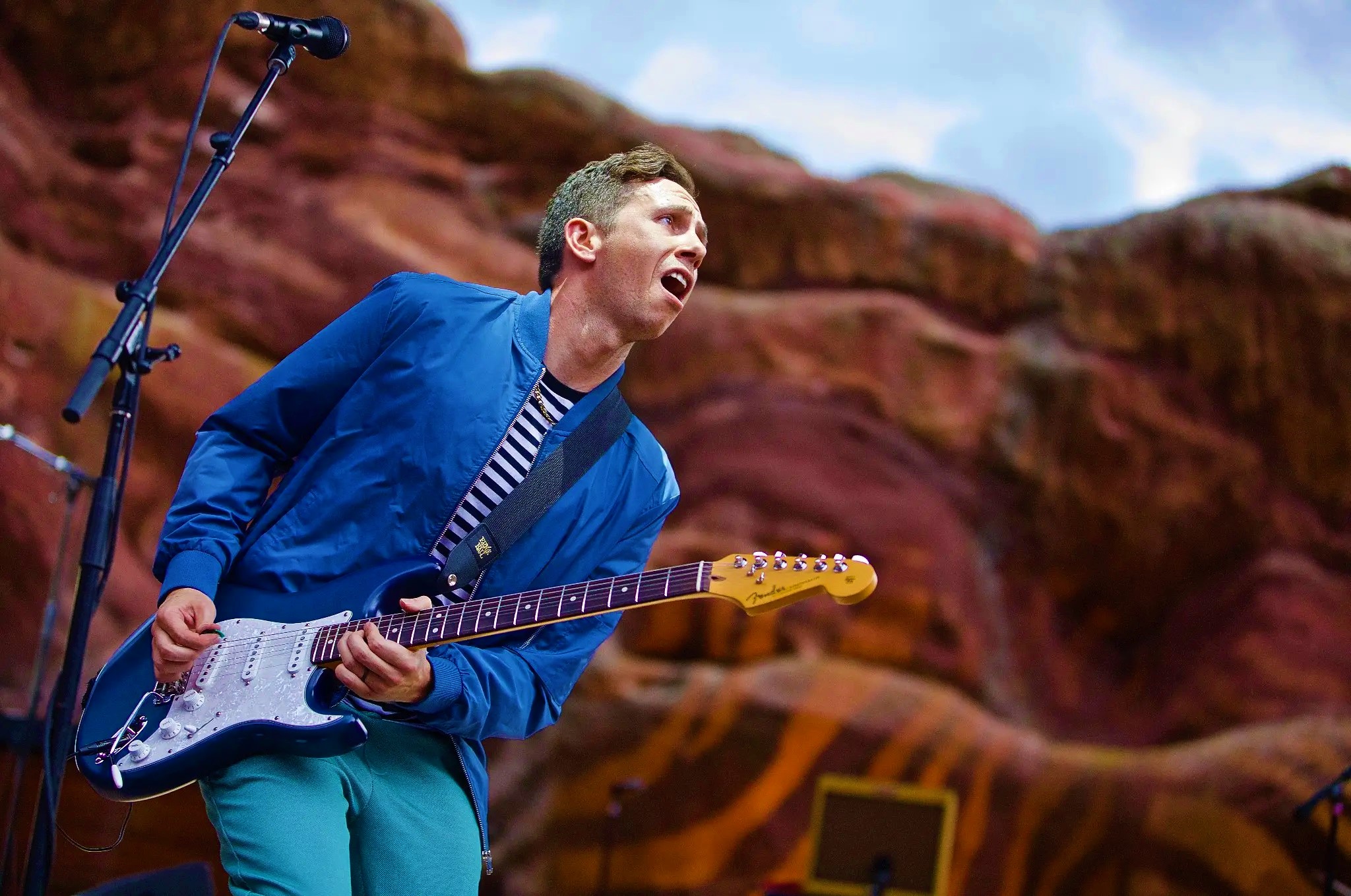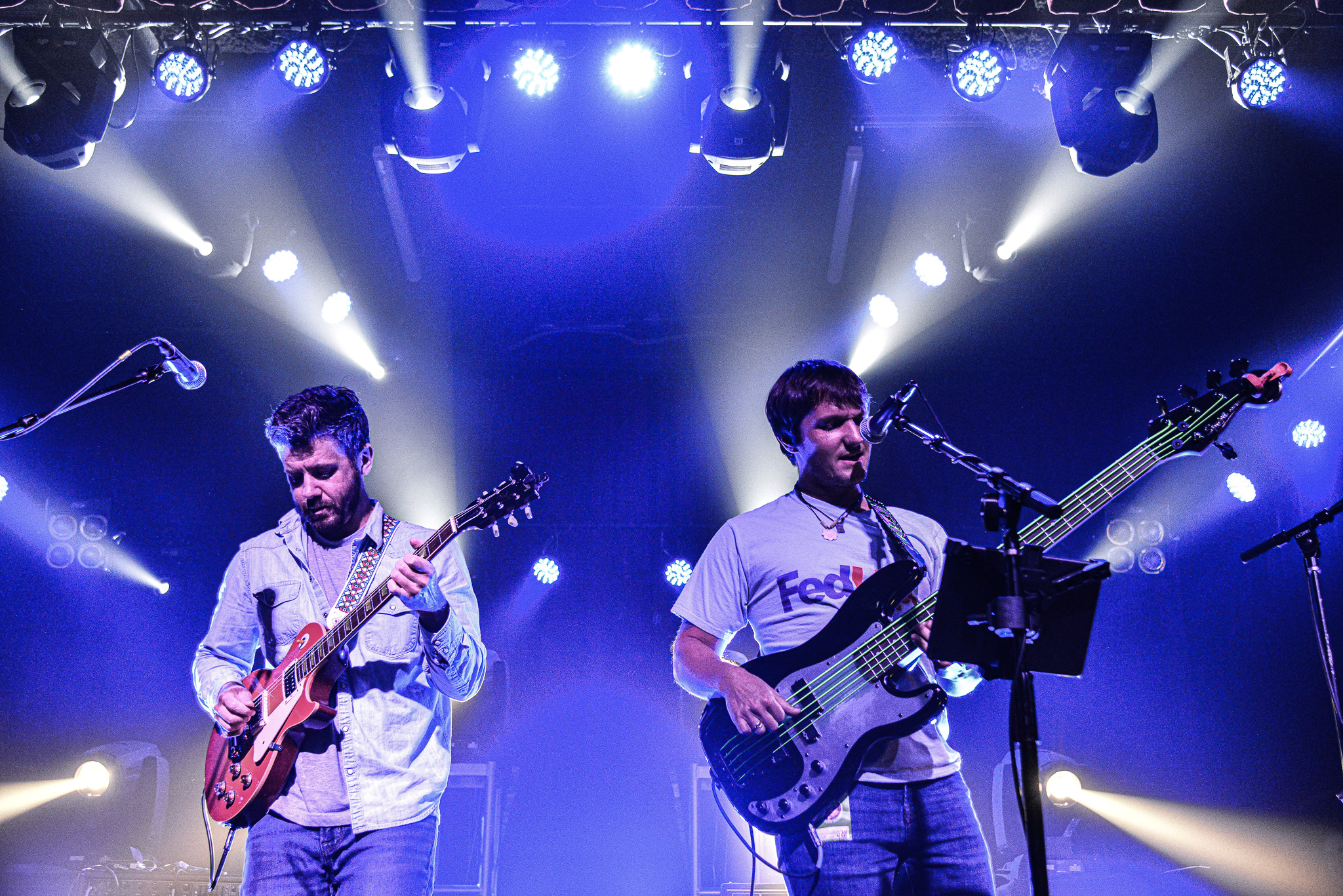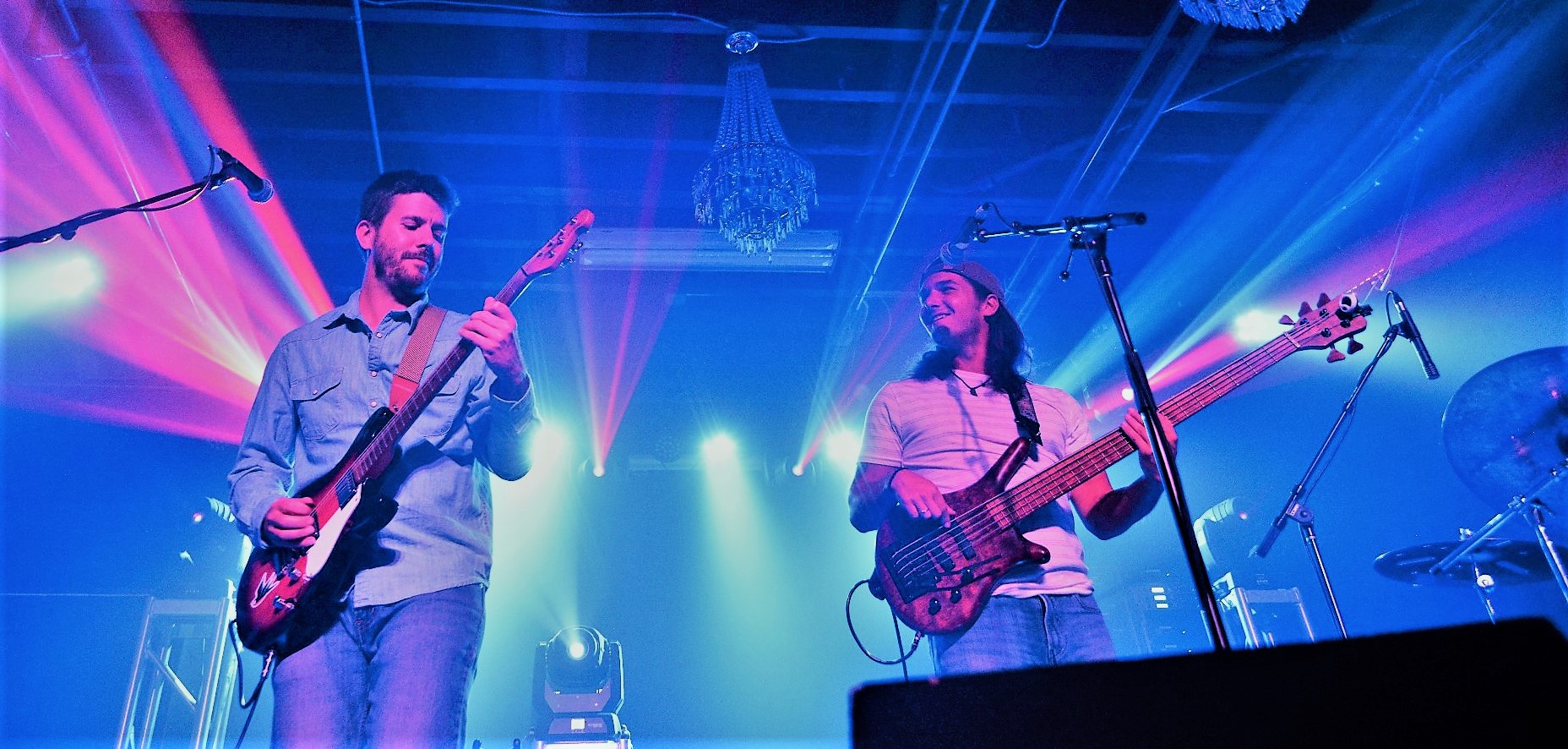Cory Wong lives a modest life – Whether he’s on the road playing sold out shows with the Ann Arbor-bred funk phenomenon Vulfpeck, diving deep under the sea with the mysterious instrumental quartet The Fearless Flyers, or touring the world with his newest solo project the Cory Wong Band, it’s safe to say this Minneapolis-based multi-instrumentalist is living a dream most would say was impossible just a few short years ago. Cory was gracious enough to sit down with Grateful Web to discuss his upcoming sophomore solo release “The Optimist” and the story behind the album title, what it was like working with members of Prince’s New Power Generation, as well as the rapid rise to the top for Vulfpeck and where they go from here.
GW: What’s happening guys, my name is Elliot with the Grateful Web, and today I’m here with our favorite funk overlord, guitarist Cory Wong of Vulfpeck. Cory, how are you doing this evening?
CW: Awesome man, thanks for having me.
GW: Now Cory you’ve made your footprint on a number of different projects, most notably Vulfpeck and the Fearless Flyers, but I wanted to start first by talking about your sophomore solo album The Optimist, due out August 17th. Now you recorded this album in just six days, eight tracks, whole lot of minimalistic funk. Walk me through the recording process of your sophomore album and what your mindset was going into this project.
CW: Absolutely, so I recorded three different sessions so six days but spread out. I gave myself six days to put together the tunes for the sessions. I’m a deadline guy, I have a bunch of voice memos on my phone and videos of different songs and melodic ideas, so finally I was like, alright I’m going to put these tracks down because some of the different players I want to work with are in town this week, so I’m just going to book a session. I don’t care if I have material or not, the material will come to me this week. That’s just how it worked, and oddly enough, I didn’t just get these eight songs, I actually got about 24 songs that we recorded over three sessions.

The first session I did a two-day thing where we did five songs each day, with three (tracks) each day that I thought were really great, and a couple where I was like "eh, we rushed through that one, so those won’t see the light of day." Then I did another session a month later, six songs total, and four of those turned out to be bangers with two of those tracks ending up being on this record, one called “Jumptron Hype Song” and the other being “’91 Maxima”, and there were a couple others on that session that I didn’t quite know how to finish but they’re bangers as well, and they will go on the next record. Then I also spent a few days recording in Nashville where the scheduling just worked out, and we worked there putting some rhythm sections together, and I had a few tunes come out of that, only one that is on this album but a few that I really like which will probably go on the next record.
I decided for this album, I was really looking at the way I was consuming music, the way I was listening to music, and for me seeing a smaller, more digestible amount of material, that’s what I was looking to do. So there’s actually only seven tracks on digital distribution, so it feels digestible and actually like a cohesive piece of art. Just like clothing companies put out their fall, spring, summer collections by season, not that I’m going to release something every season, but I’m going to try and do some smaller-sized records where I can really curate them and make them more digestible.
GW: Well we’re glad “Jumbotron Hype Song” and “’91 Maxima” made the cut, because those are as you said, absolute bangers. Out of curiosity, where did you record in Minneapolis?
CW: The first session I did was at John Fields studio in the Creation Studio building, which actually has three studios in it. John Fields studio is actually my favorite in town, he’s got the smaller room which actually I enjoy more, and it’s actually not small by any means, but he’s just an insane engineer and musician to work with. The second session I did in Minneapolis was at the Library Studios which is a great space in Northeast Minneapolis, that’s where “Jumbotron Hype Song” and “’91 Maxima” were done - a little bit bigger of a room, but it also has a cool visual and sonic vibe to it. The walls are lined with books, and it makes it look like a library inside, so it’s really cool, I like that feel a lot. Then the third session in Nashville was done at my buddy Caleb’s house, and he’s got a great studio there. The thing is, I don’t need like a state-of-the-art SSL Council whatever, I just want to be able to set some mics up in a room, and we will make it work. Now granted, sometimes being inside a really nice studio is really great.

GW: Switching gears a bit here, you had quite the scare when you were 16 years old, you were diagnosed with a very serious blood clot, and even the doctor said he wasn’t sure if you’d make it through. Flash forward, and here you are all these years later, a successful musician with a great career going. How did that event change your perspective and ultimately play into naming your sophomore album “The Optimist”?
CW: That was an interesting summer for me, it all happened from a boxing/Jiu-Jitsu accident, and by accident, it was more that I was a lightweight/featherweight going against a heavyweight, and we can just leave it there. I had some issues, and it ended up not actually being a blood clot, but what they call a TIA, and you really only know what a TIA is if you’ve had one in the past. It’s basically like a mini-stroke or a glorified concussion, maybe that’s the wrong word to use, but it was a weird head injury that just sort of resolved itself, but the bi-product was some weird medical things and my arm going numb. I just remember being really scared, not knowing what was going to happen and having the doctors going back and forth.
What it did, it really put life in front of my face and the way that I respond to adversity or tragedy, or even just happy things, it changed my reaction to how I respond to things and how to really be thankful and express gratitude every day. Sometimes things happen, but I’m going to choose to be joyful in my life and always have a positive outlook on things. I wouldn’t say it completely set a different course for my life because I’ve always been a positive person and still very much am, but that was something that put things into perspective and made me realize every day is a gift.
GW: Incredible. Now you worked with Michael Bland and Sonny Thompson of the New Power Generation, Prince’s famous stage band from the late 1980’s early 1990’s as well as the Hornheads, Prince’s horn section from the New Power Generation. Tell me about your relationship with those guys, how did you meet them and what elements did they bring to the record?

CW: It is insane, even just hearing you talk about that, it’s like wow you’re right that is crazy. I cannot believe that I get to play with these guys regularly or even just have access to them. Basically, Michael and Sonny, I had been playing some gigs around town in Minneapolis and cutting my teeth in the scene, trying to be one of the cats in town, and Michael really put me under his wing where he had me join in with them on the Bunker’s jam with Doctor Mambo’s Combo, which is like an R&B night, and he basically gave me the entire R&B soul repertoire from 1963 – 1978 to learn. I had to learn it all, every Sunday and Monday we would rip through those tunes and then hear about it, what went well and what went bad, mostly about what when bad, because they came from the Prince school of negative reinforcement. If they are giving you a lot of compliments, that means you know you’re out of the club (laughs). They want you to get better, and they want you to be part of the team, so it’s actually a good sign, for most people it’s the opposite, but here if they’re yelling at you it means they actually like you.
Then with the Hornheads, it was just playing some gigs around town, and eventually we would be on the same bill together, and they would hear me do something and dig it or be like “whoa, that was really cool.” Also, it was just about the hang, like we really got along as people, so as soon as I was in with those guys musically, the opened up to me personally as well. Which, and as you know being in the scene, once that happens you’re in, and that’s not just in the music scene, but in many facets of life. So, in the Minneapolis scene, all the legendary cats are for the most part pretty close, and once you start to move yourself up the food chain, it begins to be a tighter circle. Once I connected with those guys musically on a pretty high level, the personal thing just fell into place, then it was just like, “hey, I’m working on a record, let me know when you want to do a session.” That’s just how it is, Michael Bland is working on a record, and he will just send you a record and say, “here put your guitar stuff on this track.” The Hornheads, we have a great relationship with them as well. The scene is not bound by experience or age, once you’re in you're family and that was just an incredible feeling.
GW: Love the point about the “Prince School of Negative Reinforcement,” because if you know anything about Prince, you know he walked around like he owned the place and that’s because he did. Now a quick side note that I’ve got to ask, what’s your favorite Prince Era/Album?
CW: Well I think about all my close friends who are a part of New Power Generation, but I’m not going to say one of their records, sorry guys (laughs). To be honest, I’m a huge fan of the older, more rock stuff. Controversy, Dirty Mind, the very early stuff, even his self-titled record. One of my favorite guitar solos of all time is from “Why You Wanna Treat Me So Bad?” There’s some guitar licks at the end of that solo that I’ve just been listening to since I was a kid that are now just part of my go-to. Actually, speaking of that, there’s this epic music video we did for “’91 Maxima” where I did this crazy guitar solo at the end, and there’s definitely some licks in there from “Why You Wanna Treat Me So Bad?” So I’m an early Prince guy through and through!
GW: Gotta love the early Prince days - I wanted to talk Vulfpeck and your relationship with the band. Now you weren’t an original member. However you’ve known the guys since pretty much the beginning, and I understand you met the guys when they were on tour playing a gig at Bunker's in Minneapolis?
CW: Yeah man the Bunker’s gig is where we met, and we just hit it off right away. They were digging on the band, and we went out for breakfast the next morning, they were just passing through town, and then that evolved, and I started hanging out with them when I was in LA and vice versa. So, it turned into me playing with those guys, and that was maybe four years ago, but it’s been a fun ride man, just an absolute blast.
GW: Most bands play, record, and tour for a very long time, sometimes even decades before they finally get their big break. Whether that be getting a nationally touring gig or supporting a larger artist that opens up your fan base. You guys blew up on the scene almost immediately, from a YouTube Video band to opening up for Trey Anastasio at Red Rocks, to headlining and selling out your own Red Rocks show in just under five years. Tell me about that ride and what this experience has been like? Did you think this was ever possible? Did anyone in the band foresee this kind of success?
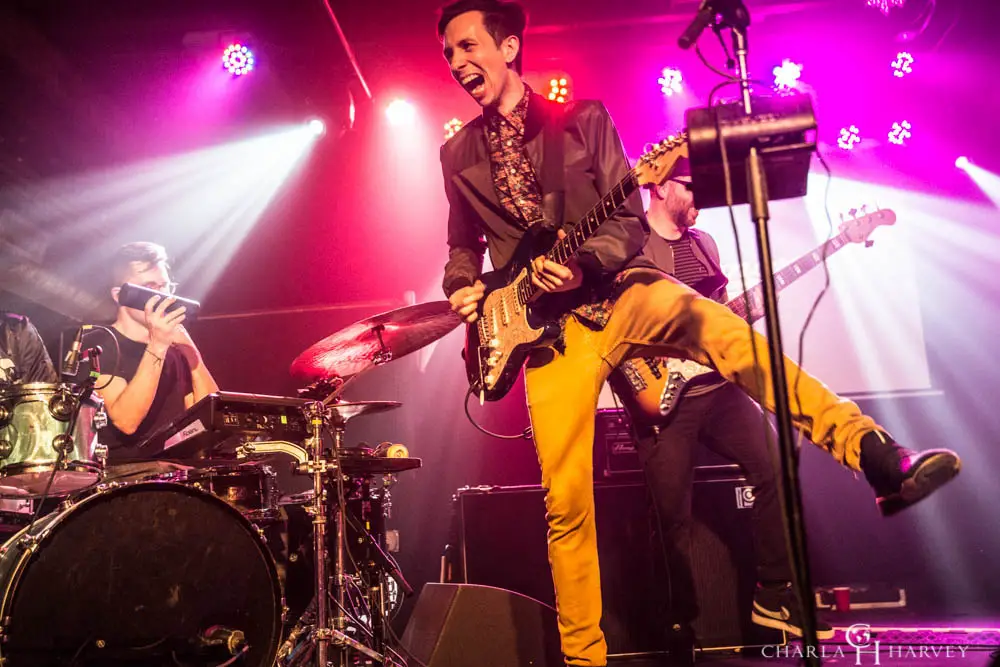
CW: I didn’t see it coming, I mean I saw it growing, but two years ago when we were recording The Beautiful Game record, I wasn’t thinking “Wow, we’re going to be selling out Red Rocks in just a few years.” I thought for sure this thing would grow and get bigger, and I think Jack probably had the vision that it was going to grow pretty fast, Jack is a genius in a lot of ways, and I don’t throw that term around lightly, but Jack was a visionary and knew what he had. What he has been able to capture through the band and his ability to understand the internet is incredible. Like, Jack understands the internet more than anyone that I know, and I don’t know that he thought about selling out Red Rocks, but I think he knew warming somebody up was a possibility, while the rest of us were like well it will continue to grow and this could be cool.
GW: Incredible to watch the growth, can’t wait to see what’s next. Now you’ve got your foot in the door of a lot of different bands. Whether you’re playing with Vulfpeck, the Fearless Flyers or the Cory Wong Band, stylistically does your approach change based on what band you’re playing with? Or is it always to just go up there with that minimal funk mentality?
CW: It changes a little bit, because my role is different in each of those. Whether I’m playing with a pop artist in a studio, or playing with the band (Vulf), or with the Flyers or with my own band, my role is always changing. I’m always cognizant first and foremost musically, but also personally of my role. In Vulfpeck, it’s the Joe Dart show baby, I mean Joe is the Angus Young and there’s all this other stuff going on where Antwaun is the lead, or Theo is the lead, or Woody is the lead, but Jack is really our captain. He’s the one who is guiding the whole thing, and I’m just playing my part doing my thing, but when I need to step up, I step up. With the Fearless Flyers, because it’s all instrumental and the puck gets passed around a bit more, it’s a bit different. With my project, because I’m the leader and the one fronting the thing, I will change it up a bit. Plus, a lot of the music with my band is just guitar-centered songs…not Guitar Center music because it’s not “Sweet Child O’ Mine” (laughs), but more guitar-centric? Music that is written for guitar, because I’m a guitar player. So, my role changes in that sense because my name is on the thing, and it’s my name in the spotlight, but it’s not like I’m going Yngwie Malmsteen shred-fest, it’s still groove-based music, and I always need to be cognizant of my role within each of the groups.
GW: Now you guys can easily get placed into the “jam-band” category of music, even though stylistically you don’t necessarily fit that category. Do you guys like that label, knowing that fan base can be at demanding and at times very opinionated, or do you think there’s a better way to describe Vulfpeck?
CW: A lot of people talk about that aspect of Vulfpeck, and I don’t think anyone in the band is trying to define the sound as one thing or another. I think in some regards, I understand why a lot of the jam fan base is into that sort of thing. However some of the guys might see it more as like a Pop thing, but it does lean towards the jam genre, I just don’t know that everyone agrees with that label, and that includes not just band members but fans in general. For me, with my new band, I totally get why people would categorize it as that, and my solo stuff definitely leans harder towards the jam fan base than what Vulfpeck does and caters to that sort of crowd. I think one of the cool things about Vulfpeck, is that most of us have side projects that sit in different genres or worlds than what Vulfpeck does because they are sort of hard to define. I know jam fans can be opinioned and what have you, but so can the jazz guys, and so can the pop people, everyone is opinionated, we are human beings.
With Vulfpeck, because we do so few shows, in some cases a lot of jam fans want to see completely different shows night-to-night, which I totally get. But I think another side of it, in the pop world, like I’ve played with a lot of pop artists and done a lot of pop tours, and the whole thing is on a metronome. It’s synched up to lighting, and every single night it’s 99.9% the same no matter what show you saw on that tour, which is cool because that’s the bull’s eye that they are aiming at. So that can be the tough part, because we have people who travel for shows, and they bought tickets to both shows and they say well yeah I came out here for both shows and I expected a difference, but on the flipside we have people who travel across the country to see the Saturday show because Friday was sold out, and they want to hear “Back Pocket” or “1612”. Like one time, I drove from Minneapolis to Detroit when I was 21 years old to see Steely Dan play, and I was going to be really upset if I didn’t see “Kid Charlemagne” or “Josie,” so it can be hard at times to really know what to play to appease all fan bases. So if Phish or Dead & Company don’t repeat a song ever, then that’s amazing too and I love that fans are interested in that, but different genres call for different things, and because the Vulfpeck audience is so wide, there is a lot of people who want to see the “hits.” So, with my solo gig, it’s definitely closer to the jam realm because I don’t have the “hits”, it’s a lot easier to just come for the vibe, the musicality, and for the fun of the show, it’s not about the songs as much, so I can get away with changing up my set more. So I guess in summary man, I see both sides of the argument, and I understand both sides, but I think what Vulfpeck does on a night-to-night basis, I mean there are a lot of differences throughout so it appeals to both.
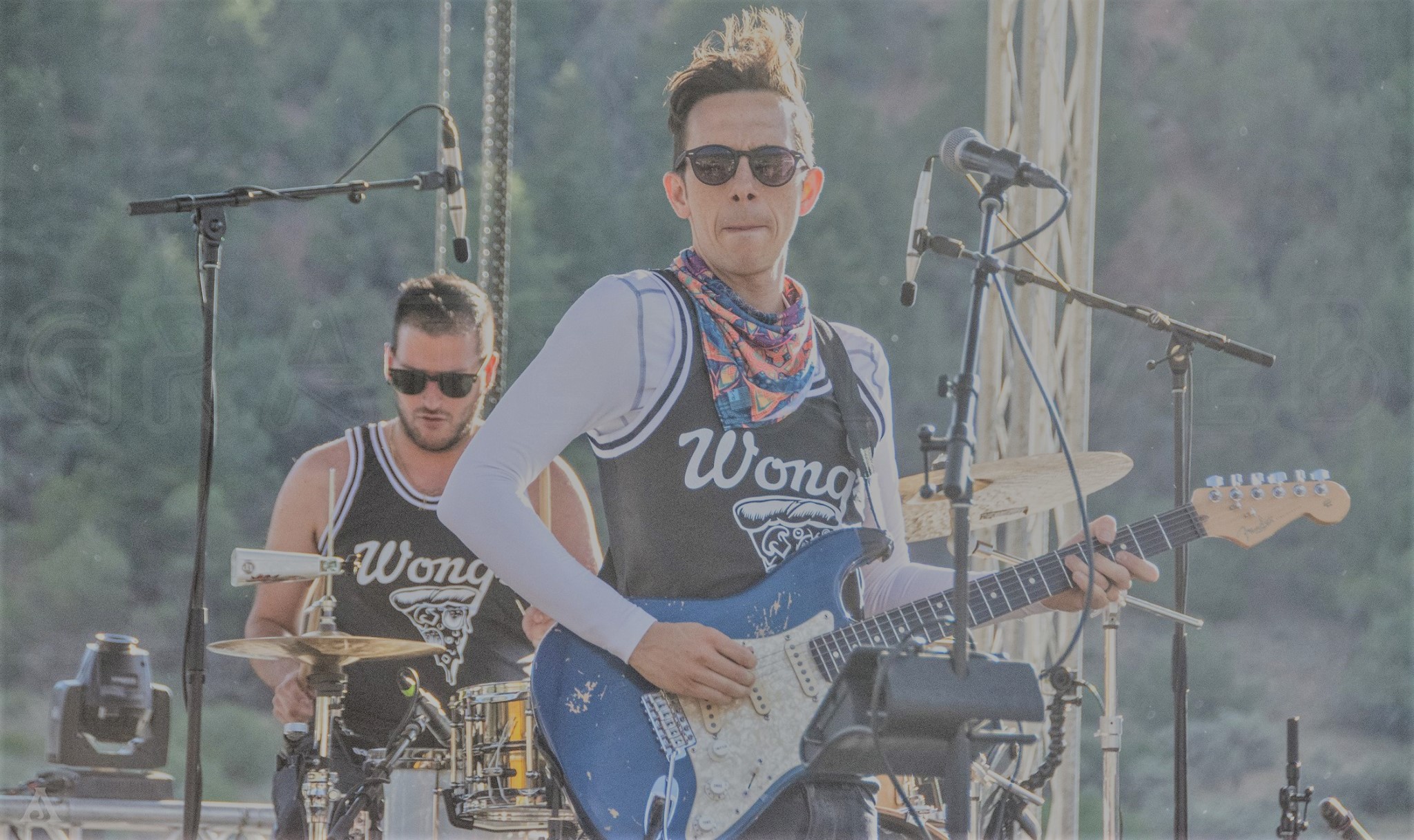
GW: Being a fellow Minnesotan, I’ve got to ask, what’s something about the Minneapolis music scene that you enjoy that might not be well known to the rest of the country? Who are some of the bands in the local scene that you are digging these days?
CW: Well some are newer bands, and some are ones that have been around for a long time that maybe just aren’t as well known. I have a lot of friends in industry towns like Nashville or LA that ask about the Minneapolis scene, and what I’ve noticed about the local scene here is it’s very much driven by the art, not by the business side of it, which a lot of times can be great, but also can be a setback for the scene. There’s a lot more art-driven purpose to the music coming out rather than chasing the newest fad, like “oh there’s an industry guy I’m meeting next week, so I’m going to put these tracks together, and it’s going to sound like whatever hit band.” There’s just not as much industry here, so a lot of these people are doing this with their genuine artistic expression and I think that’s really cool. Also, in some regards, there’s a lot of musicians here who need something to do during the winter months to keep us busy because it’s so freaking cold out. Like if I could be in San Diego in February surfing, I probably wouldn’t be as good at the guitar as I am because I would’ve been surfing and skateboarding.
Some the bands I really dig out of Minnesota, and this one has actually really gotten more attention lately on a national scale is Hippo Campus. They are crushing it and so cool, oddly enough though I might be a little biased because they asked me to play on their record just a month ago, but they absolutely shred it. There’s a guy named Mike Lewis, and I’m a huge fan of everything he does, just all around great musician. He had a group called Happy Apple with Dave King and Eric Fratzke who I’ve just been obsessed with since I was in high school. Dave King, in general, being a Minneapolis guy, just a mind-bending drummer, I love what he is doing. Bon Iver is a Wisconsin cat, who is not an up-and-comer by any means, it’s hard to deny what they are doing. There’s just really a lot of really great individuals in Minneapolis and cool stuff happening around town, but I’d have to say my favorite around town is the Hippo Campus guys, they are absolutely crushing.
GW: Final question for you Cory and we will let you go, this is a big moment for you personally with the release of your sophomore record The Optimist, what does the future hold for Cory Wong in 2018 and beyond?
CW: Well starting to do some touring with my band now starting in August and heading to Europe in October, Vulfpeck has a new album coming out this year and a tour which is going to be amazing, cannot wait for that, so yeah, a lot more of that stuff. A lot more of exploring and recording, and just can’t wait to see where it goes from here.
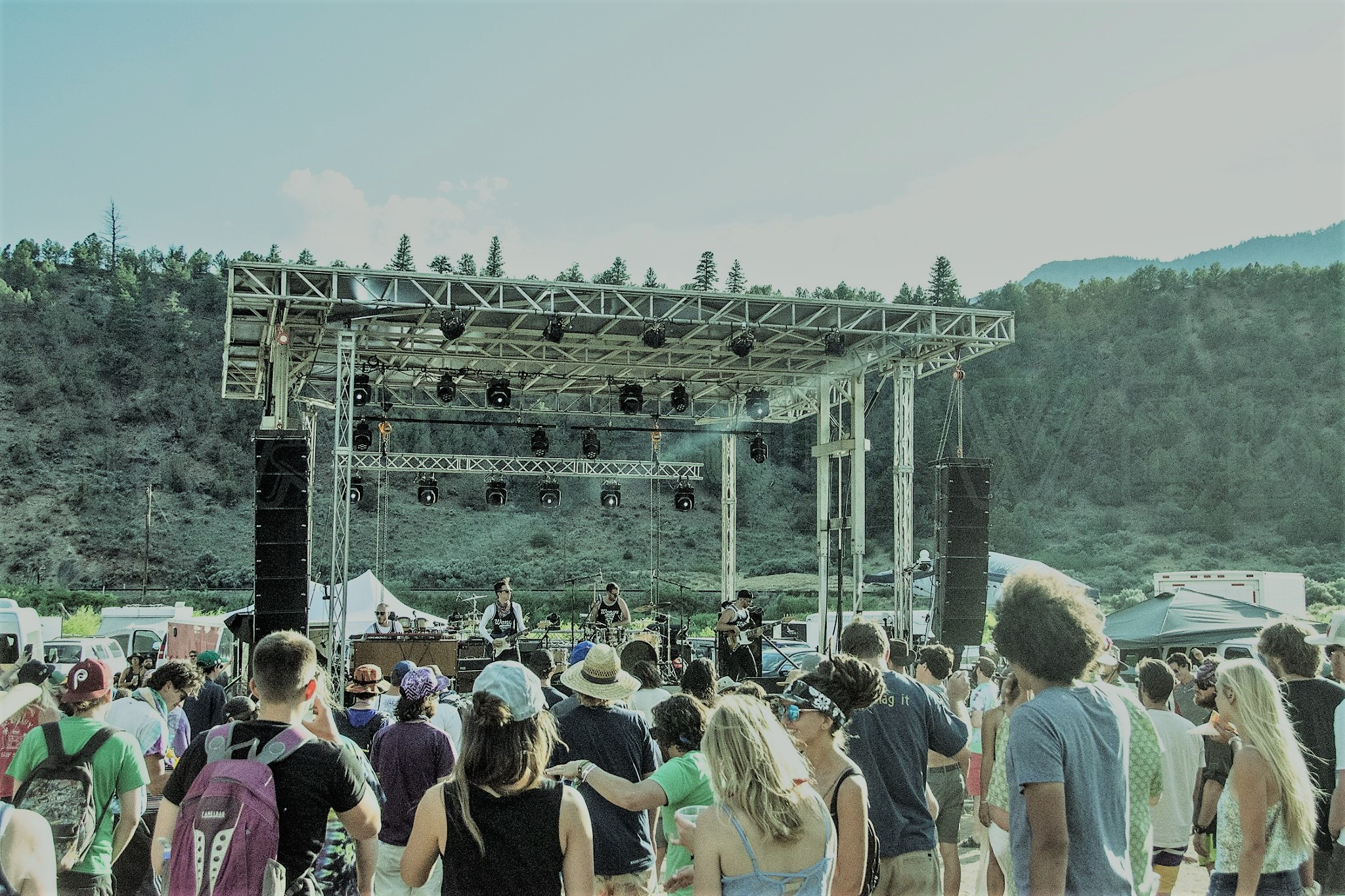
GW: Well thank you so much for your time here Cory, we cannot wait to see what’s next for you and we will catch you on the road.
CW: Thanks, guys!





